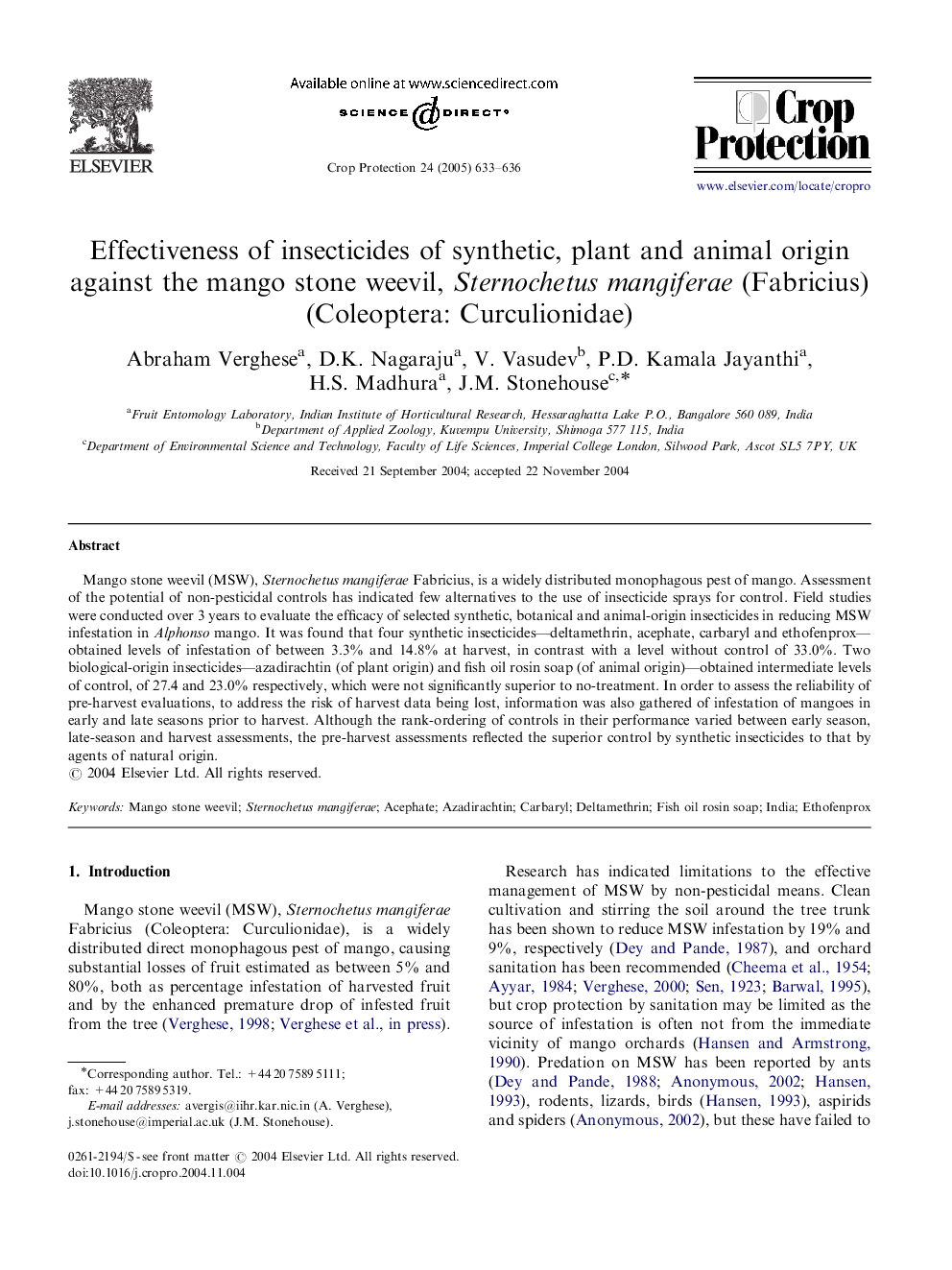| Article ID | Journal | Published Year | Pages | File Type |
|---|---|---|---|---|
| 9473025 | Crop Protection | 2005 | 4 Pages |
Abstract
Mango stone weevil (MSW), Sternochetus mangiferae Fabricius, is a widely distributed monophagous pest of mango. Assessment of the potential of non-pesticidal controls has indicated few alternatives to the use of insecticide sprays for control. Field studies were conducted over 3 years to evaluate the efficacy of selected synthetic, botanical and animal-origin insecticides in reducing MSW infestation in Alphonso mango. It was found that four synthetic insecticides-deltamethrin, acephate, carbaryl and ethofenprox-obtained levels of infestation of between 3.3% and 14.8% at harvest, in contrast with a level without control of 33.0%. Two biological-origin insecticides-azadirachtin (of plant origin) and fish oil rosin soap (of animal origin)-obtained intermediate levels of control, of 27.4 and 23.0% respectively, which were not significantly superior to no-treatment. In order to assess the reliability of pre-harvest evaluations, to address the risk of harvest data being lost, information was also gathered of infestation of mangoes in early and late seasons prior to harvest. Although the rank-ordering of controls in their performance varied between early season, late-season and harvest assessments, the pre-harvest assessments reflected the superior control by synthetic insecticides to that by agents of natural origin.
Related Topics
Life Sciences
Agricultural and Biological Sciences
Agronomy and Crop Science
Authors
Abraham Verghese, D.K. Nagaraju, V. Vasudev, P.D. Kamala Jayanthi, H.S. Madhura, J.M. Stonehouse,
